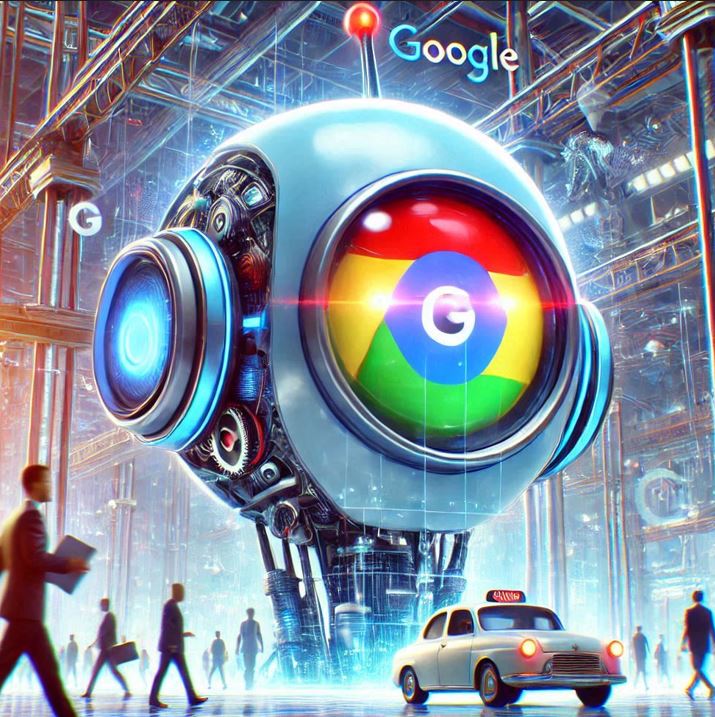
The world of SEO and content creation is buzzing with talks about Ai lately. With tools like ChatGPT and others making it easier to create content quickly, one significant concern remains: Does Google penalize Ai-generated content? Short answer: Nope, Not if it's done right.
Let’s break this down, look at what’s happening in the programmatic SEO space, and share some tips if you’re dabbling in Ai for your own content projects.
Google’s Stance on Ai Content
Here’s the deal. Google doesn’t care if your content is written by a human, an Ai, or even your pet parrot—as long as it’s valuable. Their priority has always been about delivering high-quality content that serves the reader. In fact, Google explicitly stated that it’s not about how the content is created but what it offers. If your Ai-written article is informative, engaging, and answers the user’s query, you’re good to go.
The key takeaway? Don’t use Ai as a shortcut to churn out low-effort fluff. Whether it’s human-made or Ai-generated, if the content isn’t good, Google won’t rank it. Period.
Why Ai Content Creation Is Thriving
Let’s be real—Ai is a game-changer. It’s like having a team of writers working 24/7, except they don’t ask for coffee breaks or complain about deadlines. Ai speeds up the writing process, especially for tasks like creating outlines, drafting blog posts, or generating meta descriptions.
For SEO practitioners, this means they can focus more on strategy rather than grinding through word counts. Tools like ChatGPT can whip up a first draft in minutes, giving content creators more time to refine, optimize, and focus on user intent.
Programmatic SEO Still Going Strong
One SEO strategy that heavily relies on Ai-generated content is programmatic SEO. This approach involves creating large volumes of highly targeted pages to address specific search queries, often at scale.
If you think Google’s updates have killed programmatic SEO, think again. Websites leveraging programmatic SEO are thriving, even in 2024. According to DeepakNess from UntalkedSEO “Programmatic SEO isn’t about spamming low-quality pages—it’s about using data to create hyper-specific, useful content at scale.”
For instance, instead of writing one article about “best smartphones,” a programmatic approach could generate pages targeting specific models, price ranges, and features. Done right, this strategy aligns perfectly with Google’s focus on user-first content.”
The programmatic seo approach is all about combining smart keyword research, high-quality content, and programmatic strategies to rank thousands of pages effectively to answer specific user queries.
Dos and Don’ts of Ai-Generated Content
So, you’re thinking about using Ai to create content. Great! But before you hit the “generate” button, here are a few tips to ensure you’re doing it right:
Dos
- Focus on Quality: Ai is great at speeding things up, but it still needs a human touch. Proofread, fact-check, and make sure the final draft provides real value.
- Understand Your Audience: Don’t just write for the sake of keywords. Think about what your audience wants to read and tailor your content accordingly.
- Use Ai as a Tool, Not a Crutch: Let Ai handle repetitive tasks, like generating outlines or summarizing data, but rely on your expertise for depth and originality.
- Optimize for SEO: Make sure your Ai-generated content includes proper keyword usage, internal linking, and meta tags. Ai can help here, but you’ll need to tweak things to align with your goals.
- Add Personalization: Ai can sound robotic if left unchecked. Add anecdotes, humor, or personal insights to make your content feel human.
Don’ts
- Avoid Spamming: Don’t churn out hundreds of generic pages just because Ai makes it easy. Quality always beats quantity in Google’s eyes.
- Don’t Skip Fact-Checking: Ai isn’t perfect and can sometimes generate incorrect or outdated information. Always verify the details before publishing.
- Don’t Overuse Keywords: Keyword stuffing is a rookie mistake. Write naturally, and make sure your content flows well.
- Don’t Ignore Updates: Google updates its algorithm frequently. Stay informed about the latest changes and adapt your strategy accordingly.
- Don’t Forget to Add Value: If your content doesn’t solve a problem or answer a question, why publish it? Make sure every piece serves a purpose.
The Future of Ai and Content Creation
Ai is here to stay, and it’s only getting smarter. For content creators, this means more opportunities to scale up while maintaining quality. But it’s not a free pass to ignore the basics of good writing and SEO. Think of Ai as a supercharged assistant—it can help you work faster and smarter, but it still needs guidance to get the job done right.
So, whether you’re using Ai to streamline your workflow or diving into programmatic SEO, remember this: Value is king. If your content serves the reader, Google will reward you, no matter how it’s created.
Tips on SEO and Online Business
Previous Articles

